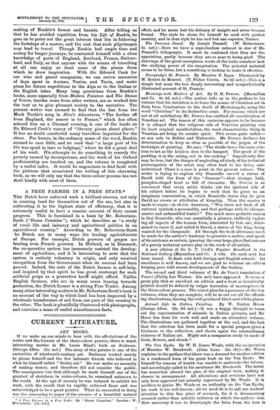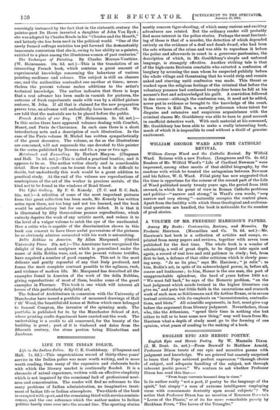explains in the preface that there was a demand for
another edition in a condensed form of his great book on the Van Eycks. He himself for reasons of health was unable to undertake the labour,
and accordingly called to his assistance Mr. Brockwell. The latter has somewhat altered the plan of the original book, making it clearer in arrangement. All alterations and revisions have not only been approved but actually supervised by Mr. Weale. It is needless to praise Mr. Weale as an authority on the Van Eycks, his work is too well known ; all we need do is to call our readers' attention to this fine piece of research, for it is documentary research rather than artistic criticism at which the authors aim: How necessary it was to disentangle the false from the true is amusingly instanced by the fact that in the sixteenth century the painter-poet De Heere invented a daughter of John Van Eyck ; she was adopted by Charles Reade in his " Cloister and the Hearth," and latterly she has been used in the political world. "One of the newly formed suffrage societies has put forward the demonstrably inaccurate contention that she is, owing to her ability as a painter, entitled to a place among the illustrious women of past centuries."



























































 Previous page
Previous page